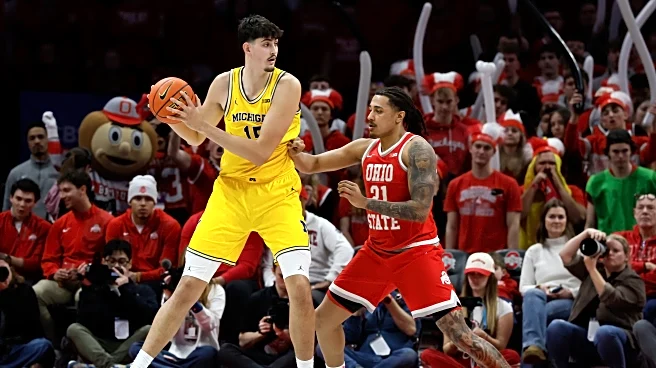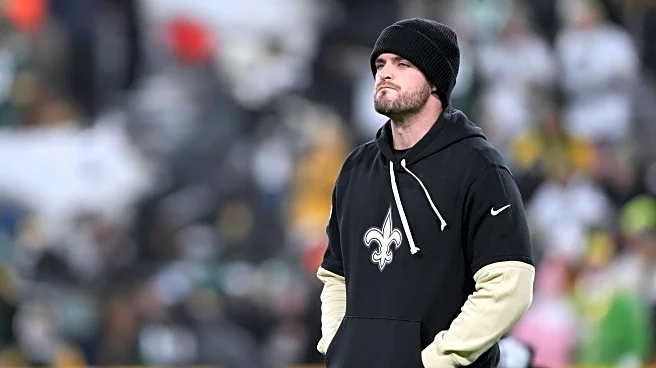What's Happening?
Mike Shildt has retired as manager of the San Diego Padres, citing the severe mental and physical toll of the role. Shildt, 57, led the Padres to the playoffs in both seasons of his tenure, achieving a .565 winning percentage. His decision follows the team's elimination from the NL Wild Card Series against the Chicago Cubs. Shildt previously managed the St. Louis Cardinals, earning the NL Manager of the Year award in 2019. The Padres will now begin the search for a new manager, aiming to continue their competitive success.
Why It's Important?
Shildt's retirement is a notable change for the Padres, who have experienced success under his leadership. His departure highlights the pressures faced by MLB managers, emphasizing the importance of mental health and personal well-being. The Padres, with a strong roster, will need to find a manager capable of maintaining their competitive edge. This change also impacts the broader MLB landscape, where several teams are seeking new managerial leadership, potentially influencing the dynamics of the upcoming season.
What's Next?
The Padres will begin their search for a new manager immediately, with the goal of winning a World Series championship in 2026. Internal candidates such as pitching coach Ruben Niebla and special assistant A.J. Ellis are expected to be considered. The new manager will inherit a talented team but will face challenges such as player free agency and maintaining team cohesion. The Padres join other MLB teams in seeking new managerial leadership, adding to the competitive market for top candidates.
Beyond the Headlines
Shildt's retirement underscores the broader issue of mental health in professional sports, particularly in high-pressure roles like MLB management. His decision to prioritize personal well-being over career ambitions may inspire other professionals to consider their own health in similar situations. Additionally, the Padres' managerial change could impact team dynamics and performance, as new leadership often brings shifts in strategy and culture.










